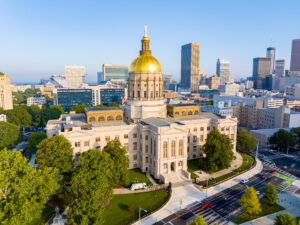
WASHINGTON (BP)–The government of India could have avoided it, a Christian leader in the Asian giant said.
It: India’s designation as a country deserving “close monitoring” of religious freedom abuses — a “watch list” designation announced by the U.S. Commission on International Religious Freedom.
John Dayal, president of the All India Christian Council, said the USCIRF designation could have been avoided “if several thousand Christians were still not in refugee camps, if the killers were still not roaming scot-free and if witnesses, including widows, were not being coerced.”
Dayal’s comments were referencing attacks against Christians by Hindu extremists in the eastern Indian state of Orissa last year.
As recounted by USCIRF: The murder of Swami Saraswati by Maoist rebels in the Kandhamal district on Aug. 23 “sparked a prolonged and destructive campaign targeting Christians in Orissa…. These attacks largely were carried out by individuals associated with Hindu nationalist groups, and resulted in at least 40 deaths and the destruction of hundreds of homes and dozens of churches. Tens of thousands were displaced and today many still remain in refugee camps, afraid to return home.”
USCIRF chair Leonard Leo, in an Aug. 12 news release, stated: “It is extremely disappointing that India, which has a multitude of religious communities, has done so little to protect and bring justice to its religious minorities under siege.” Leo said USCIRF’s Aug. 12 watch list designation and the release of a 12-page report marked “the one-year anniversary of the start of the anti-Christian violence in Orissa.”
“India’s democratic institutions charged with upholding the rule of law, most notably state and central judiciaries and police, have emerged as unwilling or unable to seek redress for victims of the violence,” Leo said.
Although USCIRF issues its annual report each May, this year’s section on India was delayed because the U.S. panel had requested visas to visit India during the summer. The Indian government, however, declined the request. India is the only democracy to have blocked a visit by USCIRF, which had been requesting entry since 2001. More than 20 other countries, including China, Saudi Arabia and Russia, have allowed the commission to enter.
According to a USCIRF news release: “… the deficiencies in investigating and prosecuting cases [of religion-related violence in India] have resulted in a culture of impunity that gives members of vulnerable minority communities few assurances of their safety, particularly in areas with a history of communal violence, and little hope of perpetrator accountability.”
USCIRF “recommends that the Obama Administration urge the government of India to take new measures to promote communal harmony, protect religious minorities, and prevent communal violence by calling on all political parties and religious or social organizations to publicly denounce violence against and harassment of religious minorities, women, and low-caste members, and to acknowledge that such violence constitutes a crime under Indian law.”
A statement by India’s Foreign Ministry, as reported by Reuters, rebuffed the USCIRF action: “India, a country of 1.1 billion people, is a multi-ethnic and multi-religious society. The Constitution of India guarantees freedom of religion and equality of opportunity to all its citizens who live and work together in peace and harmony. Aberrations, if any, are dealt with promptly within our legal framework, under the watchful eye of an independent judiciary and a vigilant media.”
Dayal, in comments quoted by Compass Direct News, lamented, “Unfortunately, nothing really impacts the government of India or the government of Indian states. The state, and our social conscience, seems Teflon-coated. The patriotic media and political sector dismiss international scrutiny as interference in the internal affairs of India, and a beaten-into-submission section of the leadership of religious minorities assumes silence to be the best form of security and safety.”
Robin Ratnakar David, president of the Christian Legal Association in India, told Compass that one year after the violence in Orissa only six people have been convicted in just two cases of rioting, while several suspects were acquitted in four such cases. (Compass is a news service that reports on persecution of Christians worldwide.)
David said the 2008 violence could have been prevented if Indian officials had brought to justice those responsible for previous mayhem in the Kandhamal district in December 2007 when at least four Christians were killed, as many as 730 houses and 95 churches were burned and thousands were left homeless.
The USCIRF news release noted that violence against India’s Muslims also was a factor in the watch list designation, specifically citing the 2002 upheaval in the Indian state of Gujarat in which more than 2,000 people, mostly Muslims, were killed. USCIRF recounted that India’s National Human Rights Commission “found that the Indian government not only failed to prevent the attacks against religious minorities, but that state and local officials aided and participated in the violence.” USCIRF subsequently recommended that India be designated among “countries of particular concern” for the most severe of religious liberty abuses. That designation was removed in 2005.
“In both Orissa and Gujarat, court convictions have been infrequent, perpetrators rarely brought to justice and thousands of people remain displaced,” USCIRF stated.
In Orissa, compared to USCIRF’s estimates of the violence, Compass reported that more than 100 people were killed and 4,640 houses, 252 churches and 13 educational institutions were burned, according to the All India Christian Council and the Christian Legal Association. Compass reported in July that 750 cases have been filed in various police stations in Orissa concerning last year’s violence.
In addition to India, other countries on USCIRF’s watch list are Indonesia, Egypt, Somalia, Tajikistan, Turkey, Venezuela, Afghanistan, Cuba, Russia, Belarus and Laos. Recommended by USCIRF for designation as countries of particular concern are China, Burma, Iran, North Korea, Saudi Arabia, Pakistan, Sudan, Turkmenistan, Uzbekistan, Vietnam, Nigeria, Eritrea and Iraq.
Although USCIRF makes recommendations for the CPC list, only the State Department officially gives countries that designation. Outgoing Secretary of State Condoleezza Rice named only eight countries as CPCs in January 2009: Burma, China, Eritrea, Iran, North Korea, Saudi Arabia, Sudan and Uzbekistan.
The bipartisan commission’s responsibility is to advise the administration and Congress regarding the conditions for religious liberty overseas. The president selects three members of the panel, while congressional leaders name the other six. The State Department’s ambassador at large for international religious freedom serves as a non-voting member of the commission
–30–
Compiled by Baptist Press editor Art Toalston. The USCIRF report on India can be accessed at www.uscirf.gov/index.php?option=com_content&task=view&id=2667&Itemid=1.














